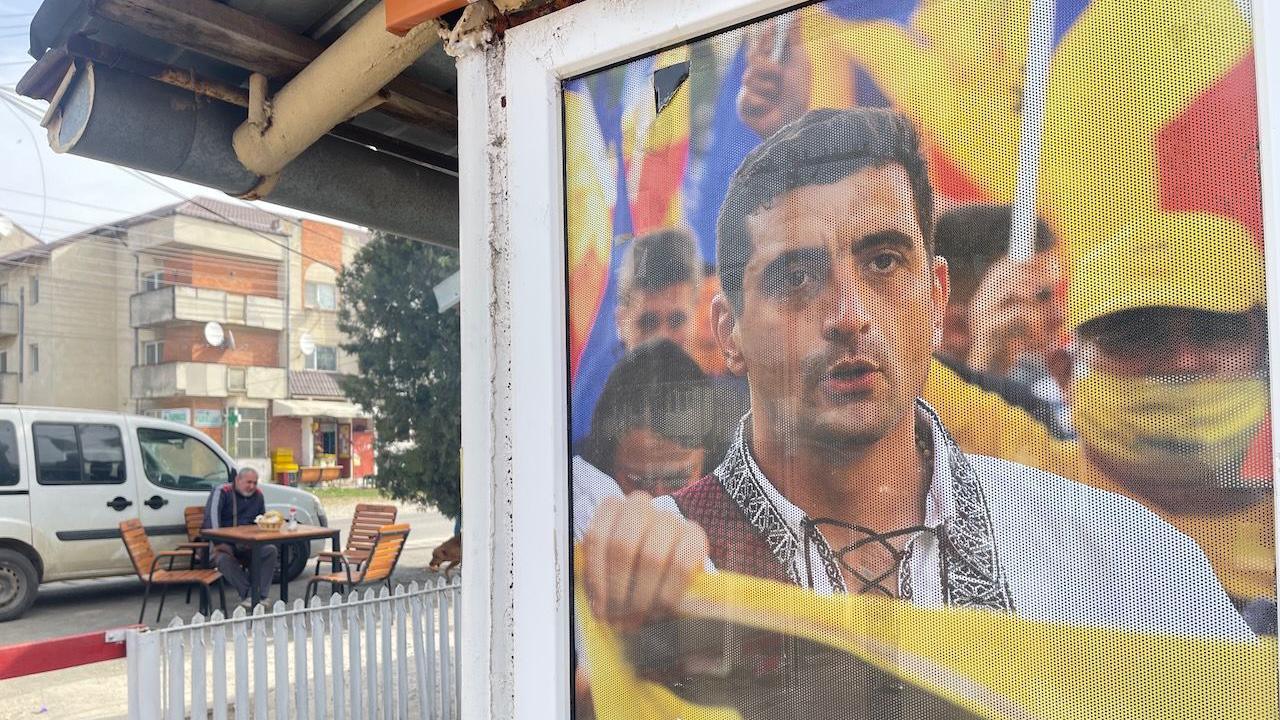Nationalist Simion wins first round of Romanian election rerun
'I am a Romanian patriot', George Simion tells Nick Thorpe
- Published
A right-wing nationalist candidate who is against providing military support for Ukraine and is sceptical about the EU has won a resounding victory in the first round of the presidential election in Romania.
George Simion came first with 40.96% of the vote, and will go into the runoff on 18 May as the clear favourite against the liberal mayor of Bucharest.
Nicusor Dan narrowly beat Crin Antonescu, candidate of the governing coalition, with just under 21% of the vote.
Six months ago, the presidential election in Romania ended in scandal and confusion. It was won by a radical outsider with mystical leanings, Calin Georgescu, but that result was annulled over allegations of campaign fraud and Russian interference.
After the polls closed on Sunday, Simion thanked those who voted for him. "It was an act of courage, trust and solidarity," he said in a recorded message.
"This election is not about one candidate or another, but about every Romanian who has been lied to, ignored, humiliated, and still has the strength to believe and defend our identity and rights," Simion posted on X on Friday.
Simion's support was especially strong in the Romanian diaspora. He secured more than 70% of votes in Italy, Spain and Germany where Romanians largely do blue-collar work.
Simion, 38, is an admirer of US President Donald Trump and says he wants an EU of strong, sovereign nations.
He told the BBC he believed in a strong Nato and was in favour of keeping Nato bases and US troops in Romania, if he becomes president.
However, he hinted he believed Nato had been too pro-active in its support of Ukraine.
Many of the voters who backed Georgescu in the annulled election last year are thought to have switched their allegiance to Simion, and the two men voted together on Sunday.
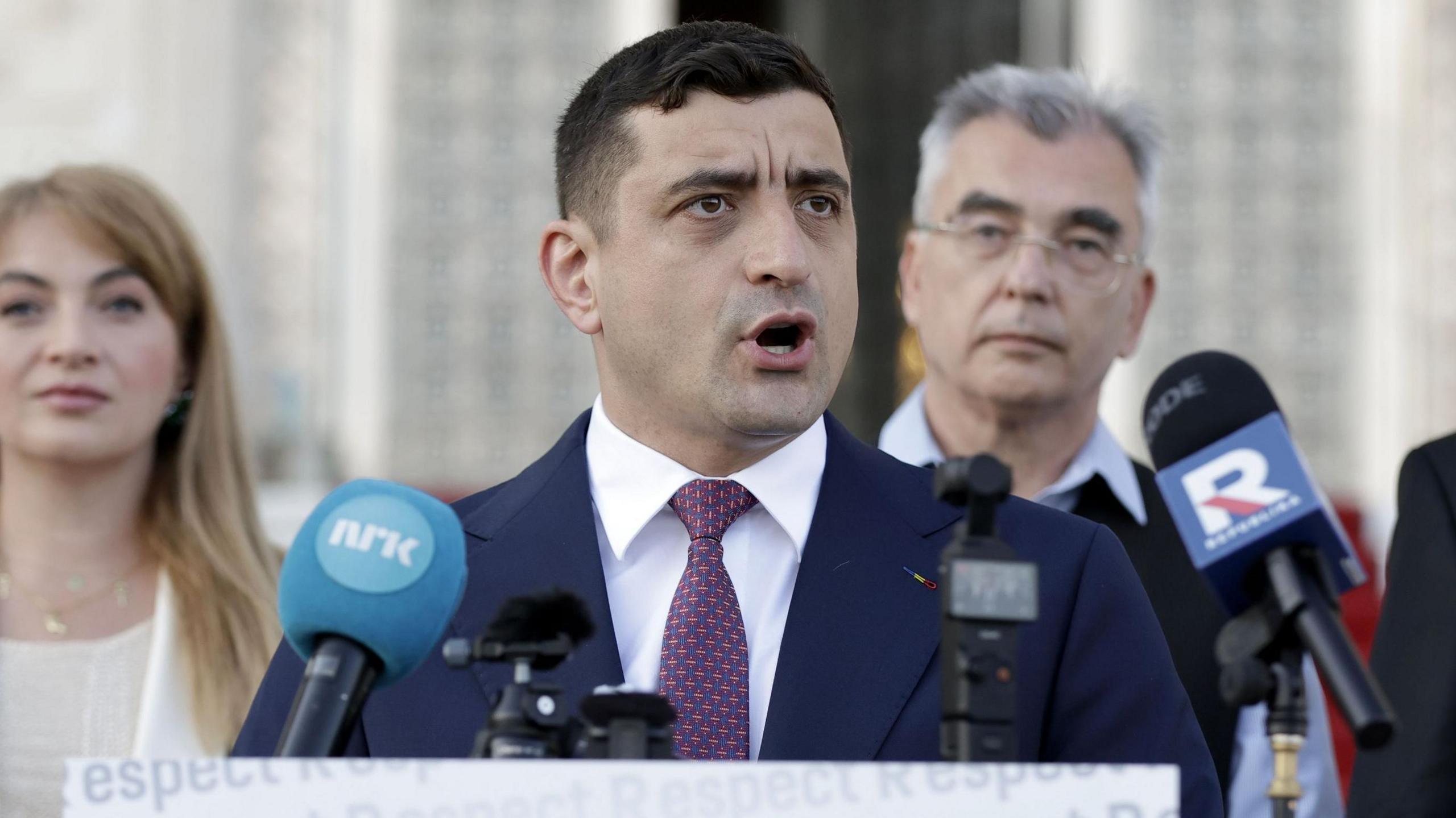
Simion won in Romania and among voters in the diaspora too
In the second round, Simion could also attract voters who backed fourth-placed former prime minister Victor Ponta, a former Social Democrat who adopted a "Romania First" campaign.
Simion, who leads the nationalist Alliance for the Unity of Romanians, calls for restoring Romania's old borders and has been banned from entering Moldova and Ukraine.
Asked how he would describe himself, Simion told the BBC: "I am young and restless. I am a Romanian patriot [who] all his life... dreamt of being part of the free world, and now we discovered that the free world is not that free anymore."
In February, US Vice-President JD Vance sharply criticised Romania for the annulment of the poll, sending shockwaves through a Romanian political establishment that leans heavily on its special relationship with the US. Georgescu was nevertheless barred from taking part in the rerun.
A potential Simion victory on 18 May is awaited nervously in European capitals, Washington, Kyiv and Moscow.
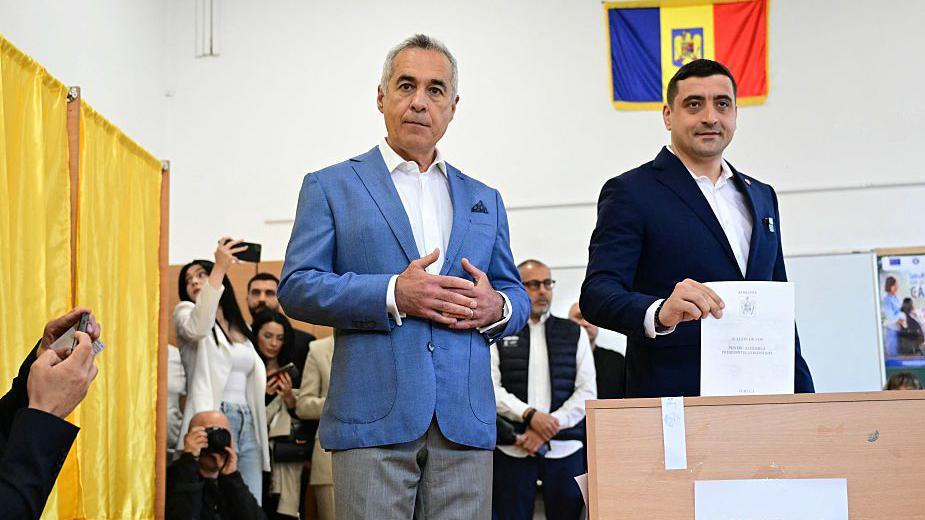
Calin Georgescu looks on (L) as George Simion votes
Romania is an important transit route for weapon systems and ammunition to Ukraine.
Last September it gave one of its two Patriot air defence systems to Ukraine. Romania has a US missile defence shield at Deveselu, and three major airbases from which Nato flies air policing missions and surveillance drones up to the border of Ukraine and Moldova, and out over the Black Sea.
Ukraine exported 70% of its grain down the Black Sea coast in 2023, through Romanian territorial waters, towards Istanbul. The Romanian navy demines those waters, and the Romanian air force trains Ukrainian pilots to fly F-16s. The Trump administration is reassessing its commitment to Romania. A visa-waiver agreement was abruptly cancelled on the eve of the election.
"Forget about any more help to Ukraine if Simion becomes president," George Scutaru, a security expert at the New Strategy Center in Bucharest, said.
As head of the National Security Council, the president can veto any decision, and has a strong influence on security policy. But Scutaru expresses "prudent optimism" that one of the centrists will win the run-off.
Simion made it clear to the BBC he felt that "Russia is the biggest danger towards Romania, Poland and the Baltic states, the problem is this war is not going anywhere".
He said he hoped the peace talks organised by the Trump administration would result in a ceasefire and peace negotiations.
Public resentment at Romanian financial support for Ukrainian refugees has been a central plank in Simion's campaign, though he denies he is pro-Russian.
Good relations with Kyiv in future, he said, would depend on Ukrainian treatment of the Romanian minority in Ukraine and on Romanian churches and schools there.
During the weekend, crowds of sightseers thronged the gardens of the Cotroceni Palace, the presidential residence in the west of Bucharest. The decision by interim President Ilie Bolojan to open the buildings and gardens to the public from Friday to Sunday was very popular among visitors.
The palace is a former monastery, converted in the 17th Century, which became home to the Romanian royal family in the 19th Century.
"I can't really imagine Simion in here," Ionut, a satirical writer, told me beside an ornate waterfall, looking up at the palace walls.
He voted for Simion in the first round of the election last November, out of anger at the constant delays to Romania's full membership of the Schengen free-travel zone. And frustration with Romania's outgoing president, Klaus Iohannis.
But Romania finally joined the Schengen land-borders on 1 January, and Iohannis stepped aside the same month.
"Romanians are less angry now," he believes. He voted for Nicusor Dan on Sunday.
Ana, a management consultant, walking with her family through the palace gardens, also supported Nicusor Dan.
"I want to vote for both continuity and change," she says. "Continuity in Romania's relationship with Europe, but change as far as corruption is concerned. We young people don't relate to the old parties any more."
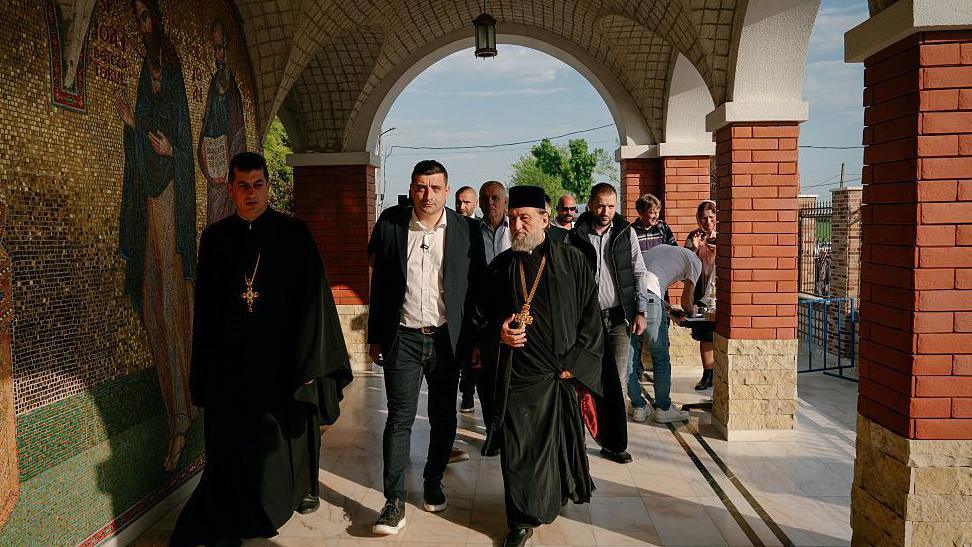
Presidential candidate George Simion visiting a monastery on the campaign trail
Related topics
- Published11 March
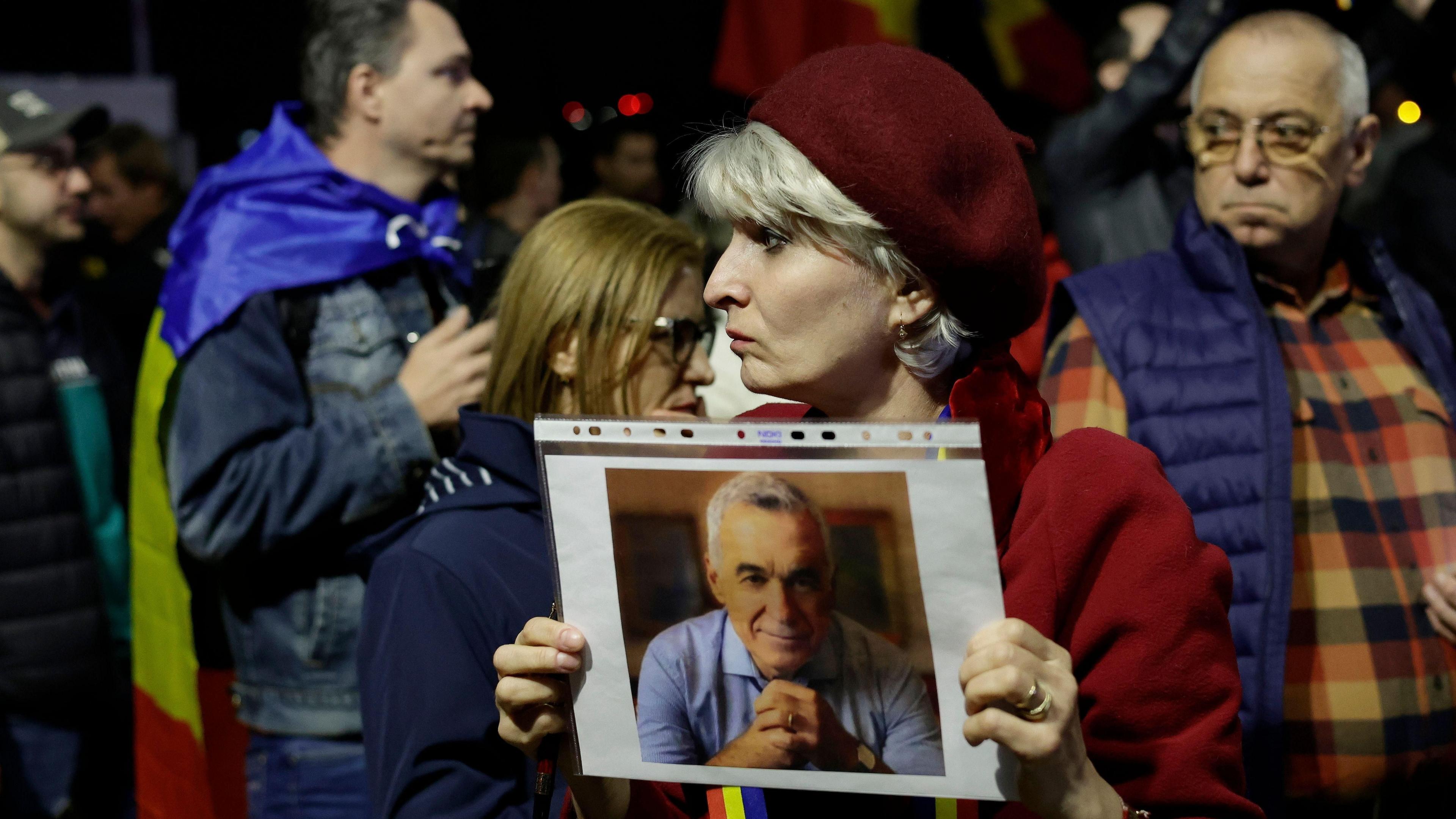
- Published5 days ago

